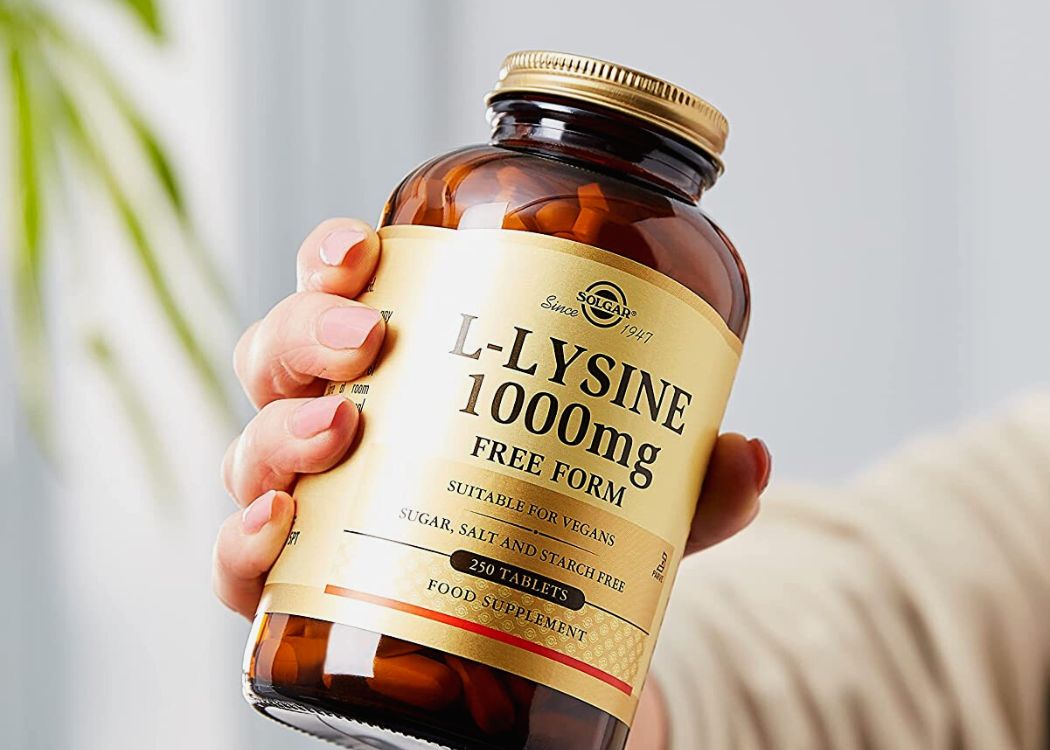Our Guide to Essential Amino Acids and How They Help
The protein in your diet is a major source of amino acids, basic components which are then assembled to create all the proteins your body needs. But with a wide variety of functions - think immunity and protecting against viruses, balancing your mood, repairing your tissue, and as storage vehicles - you might wonder if you are eating enough protein to provide all the amino acids you need. Supplementing individual amino acids might also support aspects of your health. How does that work?
By Nina Sabat (BSc Hons Dip NT)
This month’s blog is a complete guide for those who want to know about the essential amino acids and more:
- What Are Amino Acids? (covers the essential amino acids and the non-essential amino acids too)
- The Benefits of Taking Essential Amino Acids (did you know there are 2 essential amino acids that boost your production of skin-loving collagen?)
- Are Amino Acid Supplements Safe? (and the specific situations where they must be taken with caution)
- Vegan Amino Acid Supplements (and the amino acids many vegans fail to get enough of)
What are Amino Acids?
Amino acids, quite thrillingly known as ‘the building blocks of life’, are the compounds from which all the proteins in your body are made. Mix-and-matching from a pool of 21 amino acids, proteinogenic amino acids, humans can create all the proteins they need.

The numbers are quite staggering. Building on data from the Human Genome Project, human proteome researchers have calculated that with 21 amino acids, 20,000 genes and some clever trimming and snipping, there are between 80 - 400,000 proteins that the body can make.
These hundreds of thousands of proteins play a significant role in your everyday health. Amongst them are structural proteins (like those found in your skin, hair and joints) and various functional proteins (which include transport, storage, hormonal and contractile proteins, antibodies and enzymes).
Having enough amino acids to draw from is the only way to ensure these various proteins are assembled when required.
So, amino acids are the building blocks of protein, but where do they come from? While some are made from scratch in the body, others come from digesting the protein in your food.
This distinction is important as it answers the next question: There are non-essential amino and essential amino acids. What’s the difference between the two?
Non-Essential Amino Acids
Given the importance of amino acids and proteins for survival, humans developed with fail-safe mechanisms in place.
Some amino acids can be made in the body de novo, completely from scratch. These 12 amino acids are classified as non-essential amino acids.
The non-essential amino acids are:
alanine, arginine, asparagine, aspartic acid, cysteine, glutamic acid, glutamine, glycine, proline, selenocysteine, serine and tyrosine.
Essential Amino Acids
If only 12 of your 21 proteinogenic amino acids can be made by your body, where do the remaining 9 come from? In fact, this is where your food choices become relevant. These 9 amino acids, the essential amino acids, only become available after you’ve put them on your plate.

Their description indicates their importance. In order to create all the proteins you require to survive, it’s essential these 9 amino acids are present in your diet.
The 9 essential amino acids are:
Conditional Amino Acids
It’s worth noting that at certain times some of the non-essential amino acids change camps. This can happen during periods of illness or intense stress when your body is unable to synthesise all that it needs.
The non-essential amino acids that may become conditional amino acids include:
arginine, cysteine, glutamine, glycine, ornithine, proline, serine and tyrosine
Benefits of Taking Essential Amino Acids
Essential amino acids are those which are only supplied by your diet.
So, if there are instances where your protein intake is significantly – perhaps due to dietary restrictions or a period of illness - you might consider taking an amino acid supplement.
Are there benefits to taking essential amino acids even when your protein intake meets the recommended levels for a person of your sex, age and weight?
There are many who support taking a high concentration supplement of an essential amino acid to promote specific areas of wellbeing.
Tryptophan and phenylalanine for improved mood
Brain chemicals (neurotransmitters) such as serotonin and dopamine send signals which are associated with your state of mind. When you’re in the grip of a false or altered mood you might be left feeling anxious, angry for no reason, or depressed. In other instances, you may feel unfocused, unmotivated and underwhelmed.

Tryptophan and phenylalanine play a part here. Tryptophan is the building block for serotonin – your ‘feel happy’ neurotransmitter, while phenylalanine is needed to make dopamine – the neurotransmitter associated with pleasure and reward.
Studies [1] where healthy people took either tryptophan or a placebo, measured a significant difference between negative feelings and happy feelings when the two groups were compared.
Tryptophan for better quality sleep
A second, well-reported use for tryptophan is as a supplement to help support sleep. This is because tryptophan is a building block in the pathway that first creates serotonin, and then the sleep-cycle regulating hormone, melatonin.
While tryptophan isn’t equally effective for all types of sleep disturbance, in a recent review of 4 studies [2], researchers concluded: “Tryptophan supplementation, especially at ≥1 g can help improve sleep quality”.
BCAAs for enhanced sports performance
Isoleucine, leucine and valine are the most common essential amino acids. Due to their distinctive structure, they’re commonly known as the branched chain amino.
Are Amino Acid Supplements Safe?
For most people amino acid supplements will be safe to take at the recommended doses. However, some of the essential amino acids are contraindicated with particular conditions:
- BCAAs may not be suitable for people with diabetes
- Histidine is not recommended if liver function is impaired
- Caution is needed if tryptophan is taken with medication that affects serotonin metabolism
If you’re starting an amino acid supplement it does no harm to consult with a healthcare provider who is aware of your state of health.
It almost goes without saying that taking high amounts of individual amino acids for a long period will most likely carry a higher risk. Consider that there will be an increase in circulating amino acid metabolites and that amino acids compete to gain access into the cells. This may well affect cellular functions and throw biochemical pathways out of balance.
Vegan Amino Acid Supplements
Finding a good quality amino acid supplement is now quite easy to do. Amongst the wide variety currently stocked at Revital you’ll find:
- single amino acids such as lysine, tryptophan, methionine and phenylalanine
- BCAAs
- and balanced amino acid complexes - see products by Viridian and Solgar

Typically, amino acid supplements are suitable for vegans, vegetarians, pescatarians and flexitarians but check the ingredients listed.
Those who are following a vegan diet could assess their needs based on their current health. A nutritionally unbalanced vegan diet may be low in lysine, tryptophan, methionine and phenylalanine.
Summary
Amino acid supplements are now commonly available to buy, offering the consumer more opportunity to support their health goals. The essential amino acids, those that are only found in your food, might be the type you specifically need. In instances where protein intake is low, for example during illness, an amino acid supplement could help you meet your nutritional requirements. Essential amino acids may also be used to achieve particular health goals, as there is evidence of their contribution to improved sleep, mood, muscle maintenance and skin health, and for achieving a healthy weight.
References
[1] Kikuchi et al, 2022 A systematic review of the effect of L-tryptophan supplementation on mood and emotional functioning
[2] Sutanto et al, 2022 The impact of tryptophan supplementation on sleep quality: a systematic review, meta-analysis, and meta-regression
[3] Kamei et al, 2020 Regulation of skeletal muscle function by amino acids
[4] Feng et al, 2013 Histidine supplementation improves insulin resistance through suppressed inflammation in obese women with the metabolic syndrome: a randomised controlled trial
[5] Lamming et al, 2017 Study: Diet limiting specific amino acids may be key to weight loss
[6] Volpi et al, 2003 Essential amino acids are primarily responsible for the amino acid stimulation of muscle protein anabolism in healthy elderly adults